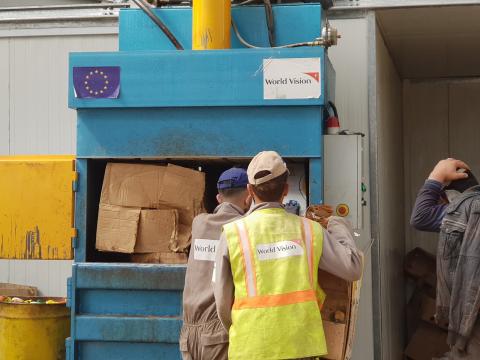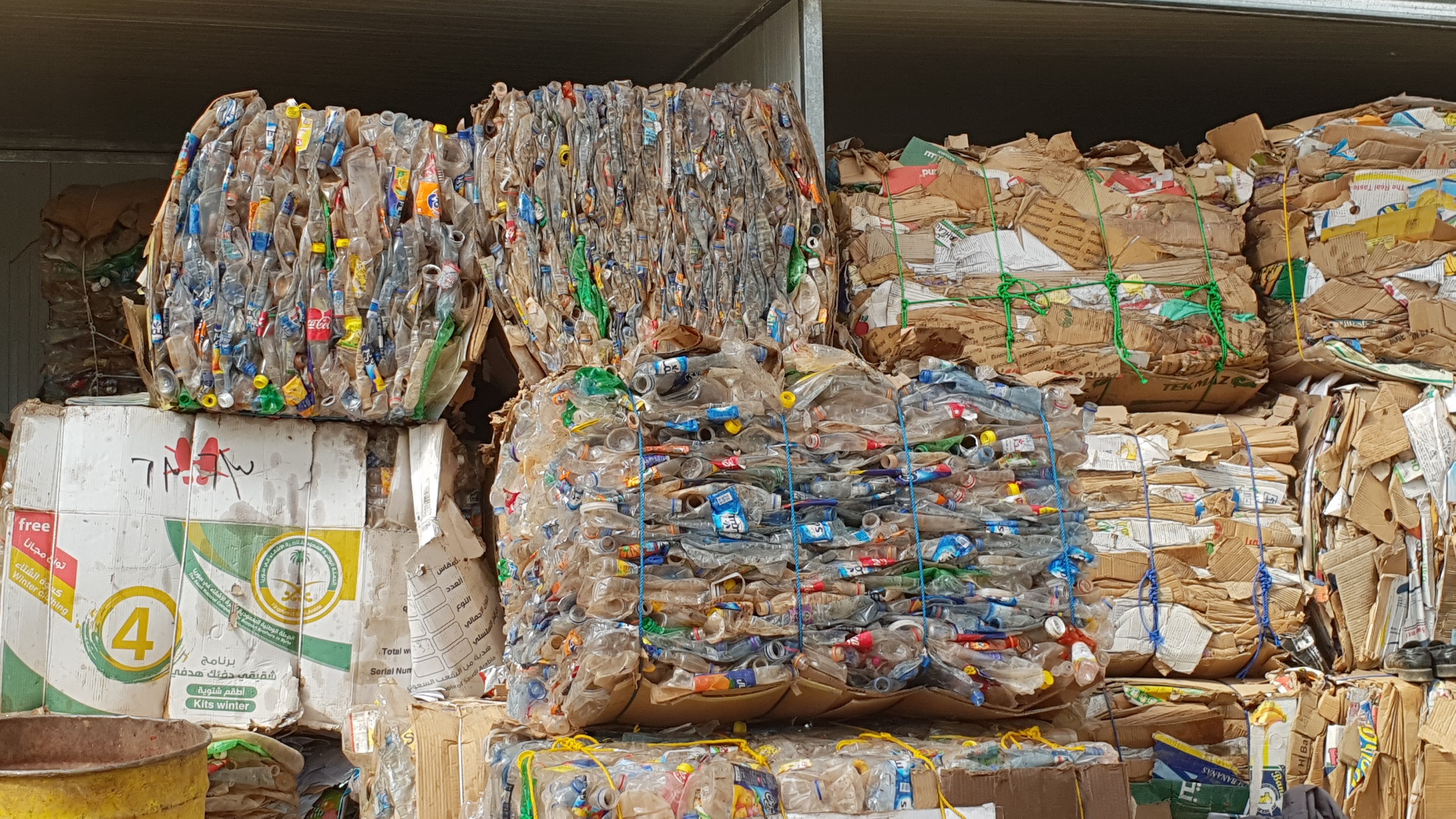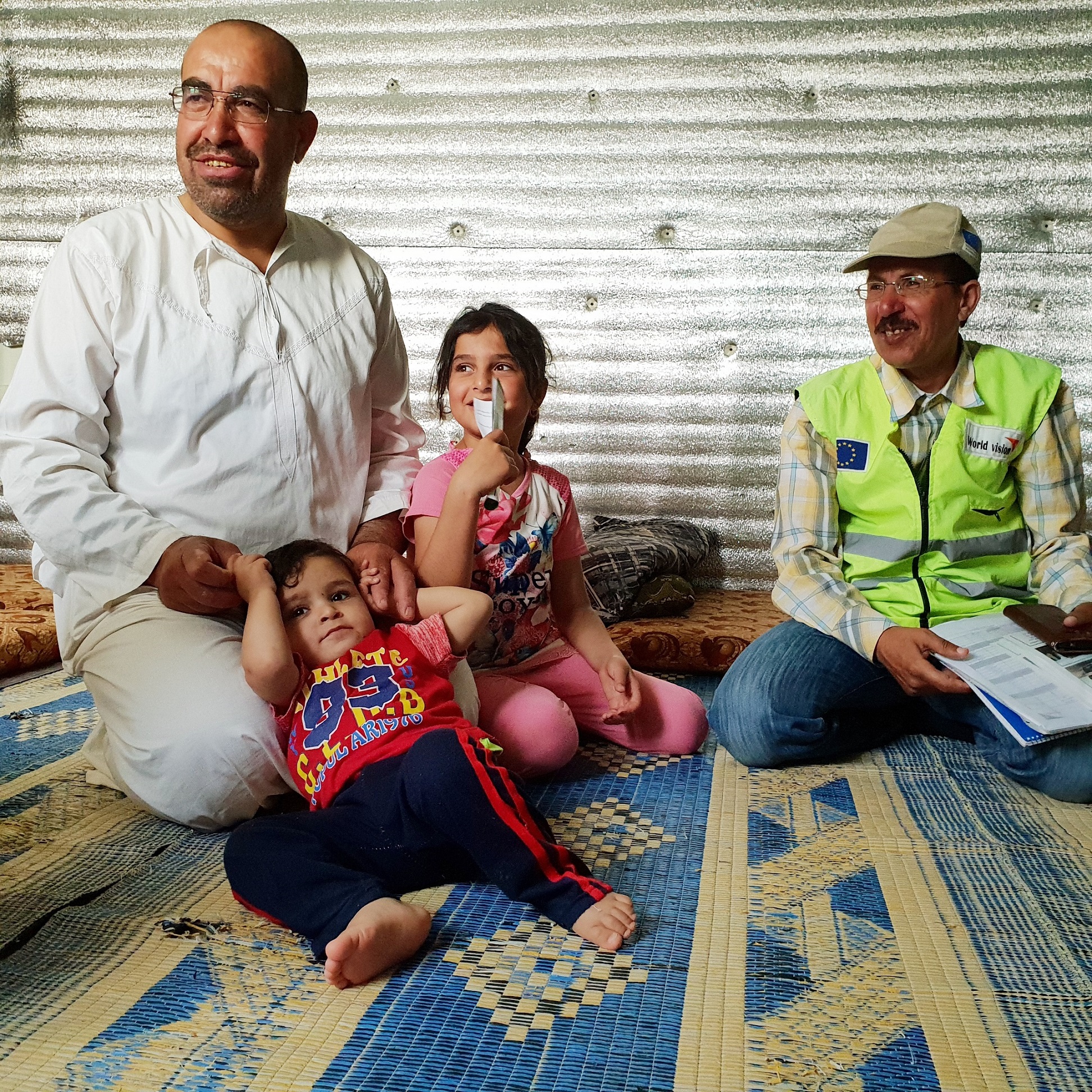Beating plastic pollution in the desert

By Dominique Monera-Tabora, World Vision
A Green Centre in the middle of the Arabian desert is leading the recovery of plastics used inside the Azraq Refugee Camp.
In line with the “Beat Plastic Pollution”, the theme for World Environment Day 2018, the Green Centre operated by World Vision International and funded by the European Union recovers recyclable materials from almost 25 tons of solid waste collected daily inside the camp. Approximately 31 percent of the recyclable waste collected daily are plastics. In an effort to combat one of the great environmental challenges, the plastics collected are sorted and sold to processing plants that makes the plastic into vegetable containers. Fifty per cent of the plastic recovered in Azraq are plastic packaging materials while another 50 percent are vegetable bins. To date, the World Vision’s Green Centre has accumulated 26 tons of plastic waste that will be sold to recover operational cost.
Alongside the collection of recyclable waste, Syrian refugees trained as community mobilisers conducts community gathering and shelter visits to encourage refugees to separate recyclables from organic waste using the color-coded blue and green waste bins. Syrian refugees are urged to reuse plastic containers to minimise single-use plastics.
Khalid, a 46-year-old businessman who came from Homs, gladly shows the recycling bin and bag of plastics that he and his family of seven keep inside their shelter. From having a big store in Homs, a bustling trading post in Syria before the war, Khalid makes the most of their current situation by keeping his shelter clean. “The cleanliness is part of our culture and we continue it here specially after we were given bins for recyclable waste.”
“It is important that the camp has a place to recycle waste and keep the cleanliness”, adds Mahmoud. Mahmoud who also came from Homs misses his huge house and farm with more than a hundred olive trees. He keeps himself busy in Azraq camp by volunteering as part of the World Vision’s community mobilisation team for solid waste management and convinces refugees to segregate recyclable from organic waste in their homes and to throw the segregated waste in the appropriate colored bins.
Prior to the establishment of the Green Centre in November 2017, almost 25 tons of organic and recyclable waste collected daily are mixed and diverted to unsanitary landfills and dumpsites contributing to the 2 million tons of municipal waste generated in Jordan each year.
Around the world, 1 million plastic drinking bottles are purchased every minute. 500 billion disposable plastic bags are used worldwide every year. In total, 50 per cent of the plastic we use is single-use.
In 2012, the Jordan Ministry of Environment estimates that more than 3 billion bags are used per year. Plastic bags made of polyethylene and derived from petrol is not only an environmental hazard but have also significant repercussions on agriculture. An article by UNESCO during a campaign to reduce plastic use states that “plastic littering also affects agricultural productivity and reduces the quality of livestock. Every year an estimated 60,000 sheep are suffering weight loss or mortality due to blockage of the digestive system as a result of eating littered plastic bags.”
The Sustainable Food Security for refugees through Environmentally Responsible Solid Waste Management Project funded by the European Union and World Vision in Azraq is raising awareness and changing behaviours to reduce the heavy burden of plastic pollution in our environment.

